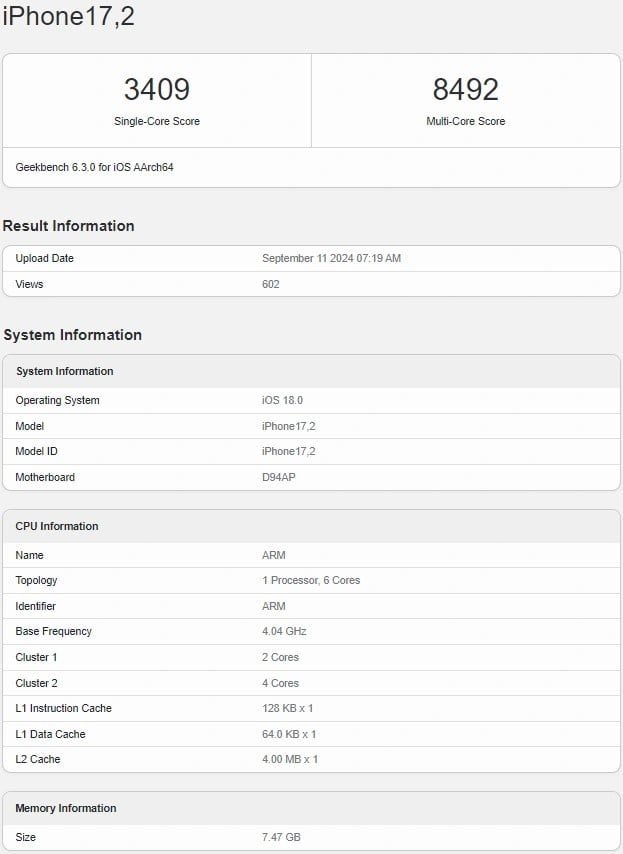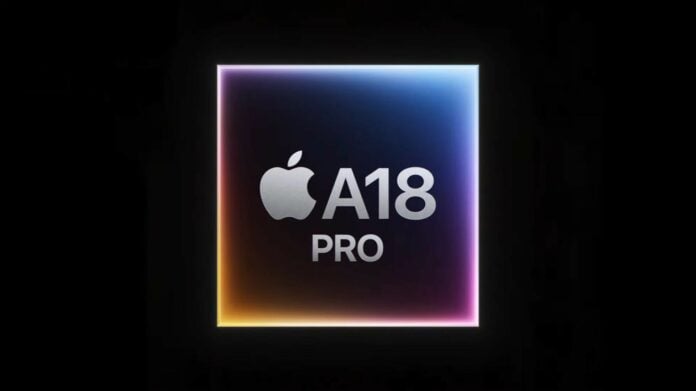Apple A18 and A18 Pro mobile processors have cropped up on the Geekbench database, showing higher single-core scores than their competition. A great performance for such small and efficient chips.
According to Geekbench 6 results, two entries going by the name iPhone 17.2 and 17.3 delivered performance on par with Qualcomm’s latest and greatest Snapdragon 8 Gen 4 chips. Believed to be the iPhone 16 Pro and iPhone 16 Pro Max smartphones, these devices racked up 3,114 and 3,409 points in single-core tests, respectively. As for multi-core benchmarks, the duo appears to reach 6,666 and 8,492 points apiece.
This puts the iPhone 16 Pro Max ahead of the OnePlus 13’s prototype which managed 3,236 points in single-core tests. That said, Snapdragon 8 Gen 4 claims a much higher 10,049 multi-core score, likely due to its extra two cores. By comparison, Apple’s contenders carry a max of six.

For reference, these Snapdragon scores are 47% and 37% higher than its predecessor, Snapdragon 8 Gen 3. As for Apple, the A18 Pro powering iPhone 16 Pro Max is 18% faster than the A17 Pro inside iPhone 15 Pro Max on both single- and multi-core tests. That said, these are the first performance figures we have, and knowing Geekbench, they could change drastically depending on the system configuration. We should wait for more results to make a final decision, though things look good already.
Smartphones are undoubtedly gaining power with each passing generation, helping them become the universal devices they aim to be. Just look how the iPhones can run modern AAA titles such as Resident Evil Village, albeit at lower resolutions and graphical fidelity. In the future, I wouldn’t be surprised to see games and apps launch simultaneously on PCs, Macs, and smartphones.
In the meantime, these improvements do not come cheap, starting at £999 for the iPhone 16 Pro and £1,199 for the iPhone 16 Pro Max. I think I will keep my Galaxy S8 for some time.

